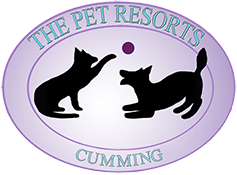What inspires dogs to roll in yucky stuff is one of the world’s unsolved mysteries. If you live with a dog, you’ve probably seen this situation go down. Spot’s nose catches a scent, and he ambles off. Suddenly, he does a face plant, rolls over, and engages in a writhing, shimmying breakdance that causes his entire back to skid along the ground. A look of canine ecstasy fills his face as he stands up, shakes, and repeats.
You come running and shouting in horror. Spot has been doing more than just innocently scratching his back. He’s been slathering his torso with the unmistakable essence of something putrid and objectionable—to humans, that is.
A dog’s olfactory system is one of the marvels of biology. It dominates a dog’s brain much like vision dominates a human brain. A dog’s ability to discriminate scents is at least a million times greater than ours. Another feature of the dog’s sense of smell is its enormous “dynamic range.” L. Wilson Davis, writer, trainer and author of Go Find! Training Your Dog to Track, explains it this way:
“If a skunk sprays your rosebush, you will be unable to smell the roses. Not so for the dog, who can discriminate among a number of subtly different scents all of which have been sprayed by a skunk.”
A state-of-the-art nose is what makes your dog crave smelly things—such as stinky garbage, rotten carcasses, and of course poop—which a mere mortal would find unbearably disgusting.
Still, this provides only a partial explanation for this unpleasant habit. In fact, animal behaviorists debate about what purpose this repulsive rolling can possibly serve. Conventional wisdom says the behavior is instinctive, a carryover from a dog’s wild canine ancestors. Here are some leading ideas:
Dogs’ Top 5 Reasons Why They Love to Roll in Yucky Stuff
Because it feels great
Because he just had a bath
Because there’s company coming over at any moment
Because he just had a bath AND there’s company coming over at any moment
Because it’s so amusing to see our humans come running, shouting, and flailing their arms for something that’s no big deal
It pays to advertise
Some experts speculate that this is a behavior inherited from wolves that, upon finding something remotely edible, would use this as a way to convey to the rest of the pack that there was food nearby. This is consistent with the fact that wolves and wild dogs are scavengers. They are accustomed to eating carrion and other rotting organic matter that would turn the nose of a more selective eater. This does not, however, explain why a dog would want to roll in feces.
Nature’s calling card
Other dog aficionados speculate that dogs roll in yucky stuff to mark it with their own scent, rather than the reverse. In other words, they are leaving a personal calling card on the rotting dead thing. Or in the case of feces, they are perhaps overriding a scent left by someone else.
A clever disguise
The leading theory postulates that the modern dog’s ancient ancestors used stinky smells as a disguise. Prey such as antelope, deer, and other hoof-stock are also endowed with keen senses of smell. They can distinguish a predator lurking miles upwind. Perhaps the ancestral canine learned to mask his scent with antelope carcass or deer dung so as to mingle unnoticed among the unsuspecting prey. There is some evidence that modern wolves do the same.
If it feels good, do it!
Some speculate that dogs roll in smelly stuff for no good reason at all, beyond the fact that it just feels good.
Attention-seeking
Finally, the occasional dog may crave the attention he gets when caught donning his own or someone else’s feces. The behavior may also result from boredom.
So How Can You Keep Your Dog from Making a Stink?
It’s important to realize that for your dog, this behavior is instinctive, quite pleasurable, and not entirely under his control. Try not to overreact when your dog engages in this behavior. The scene you create or the chase that ensues can actually reinforce it. Immediately remove, if possible, any feces left by your dog or other animals. Keep your dog on a leash when you’re out in the woods or other places where wild creatures and their detritus may reside. If boredom is thought to be the culprit, seek ways to enrich your dog’s environment (lots of exercise, toys, agility work, hide-and-seek games).
Although these measures may help, they are not fail-safe. Consider investing in a great-smelling deodorizing shampoo for your pet . . . and if worse comes to worst, get nose plugs!
www.doghealth.com
